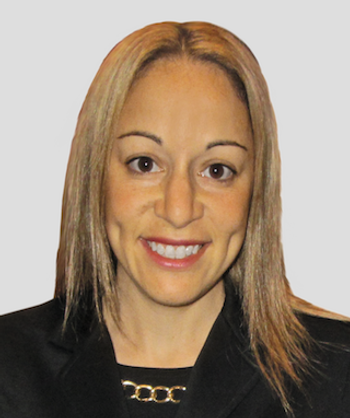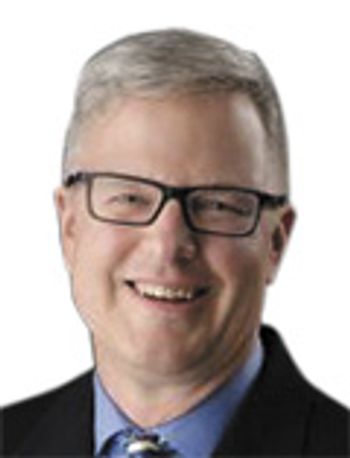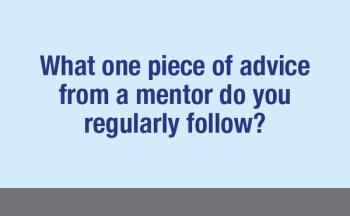
In this blog post, Adele M. Caruso, DNP, CRNP, summarizes current evidence and guidance for hematuria evaluation as it pertains to clinicians, including advanced practice providers.

In this blog post, Adele M. Caruso, DNP, CRNP, summarizes current evidence and guidance for hematuria evaluation as it pertains to clinicians, including advanced practice providers.

The author’s career shortcomings are lessons in academic pursuit, leadership, and more.

"While I love my partners and my staff, the chance to work with a new group of nurses and to interact with a new group of local doctors is in many ways invigorating," writes Henry Rosevear, MD.

"As regional players such as the local university and national entities such as Mayo and Cleveland Clinic continue to expand, we are faced with the decision to sell out to a local hospital, radically expanding our own footprint with the goal of creating a mega group or joining forces with a larger, already-established urology group," writes urologist Henry Rosevear, MD.

"I was not going to be the point of obstruction denying a service that was available to this family on that day," writes Robert H. Ritter, MD, in this letter to the editor.

"I think the future is very bright for women in urology," says Stacy Loeb, MD, MSc.

“Urology practices that are struggling to achieve payment increases and bonuses under MIPS for 2017 and 2018 may reap some strategic benefits from taking the lead in forming virtual groups in subsequent years,” according to Rick Rutherford, CMPE.

“After more than 10 years in urology (including 5 in residency), I thought I was reaching the point where I have at least heard of all things urologic… Once again, life proved me wrong,” writes Henry Rosevear, MD.

Henry Rosevear, MD, shares what he learned from reducing time spent on his smartphone.

"Many people, including many practicing urologists, are unaware that over the course of the past 40 years, the Urology Care Foundation has supported more than 750 young scientists... with nearly $30 million in funding," writes Brian R. Stork, MD.

"I'm not opposed to making a profit, and certainly businesses that take the risk to develop new technology should be financially rewarded for bringing that technology to market. But should life-changing technology be limited to those who can pay?" ponders Dr. Rosevear.

In his latest blog post, Rick Rutherford, CMPE, discusses the effects of recent major changes in the method that Medicare reimburses in-office clinical lab services.

"The next time you think about what you would do instead of becoming a doctor and especially a urologist, just stop and be thankful you chose urology," writes Neil H. Baum, MD.

Ever have one of those moments when you stop and question an assumption?

Urology Times reached out to members of our Editorial Advisory Board and asked them each the question: "What one piece of advice from a mentor do you regularly follow?"

"It can be a scary world online and it did take me over 5 years in the real world to finally engage with social media. But it is something that I encourage all physicians to consider," writes Henry Rosevear, MD.

"Urologists frequently become enamored by the research and the unique characteristics of new technology. The business management team must ask the hard questions," writes Rick Rutherford, CMPE.

Henry Rosevear, MD, reflects on his recent experience as a faculty member at the AUA oral board exam.

Urologist Henry Rosevear, MD, shares what he's most looking forward to at the AUA annual meeting in San Francisco.

"In order to complete our transformation into urologists, we must learn to understand and respect the multifaceted importance of responsibility for our patients, our teachers, and our mentees," writes Nirmish Singla, MD.

Urologist Henry Rosevear, MD, reflects on the three lessons he's learned in 5 years of practicing urology.

Dr. Henry Rosevear's most-read blog posts from 2017 cover topics including the AUA annual meeting, physician employment, and pain control.

"While I don’t know if I 'feel the Bern' about a single-payer system, I also don’t think I would have to start looking for a second job if we transitioned to that system," writes Henry Rosevear, MD.

"All the surgeons I know think that while they may not be the best in the world at what they do, they are clearly above average (think Lake Wobegon, but as adults). Hence, it can be a little disconcerting when data is produced that suggests that at least half of us have room for improvement," writes Henry Rosevear, MD.

“Fostering emotional intelligence among providers supports the provision of high-quality and compassionate care,” writes Adele M. Caruso, DNP, CRNP.